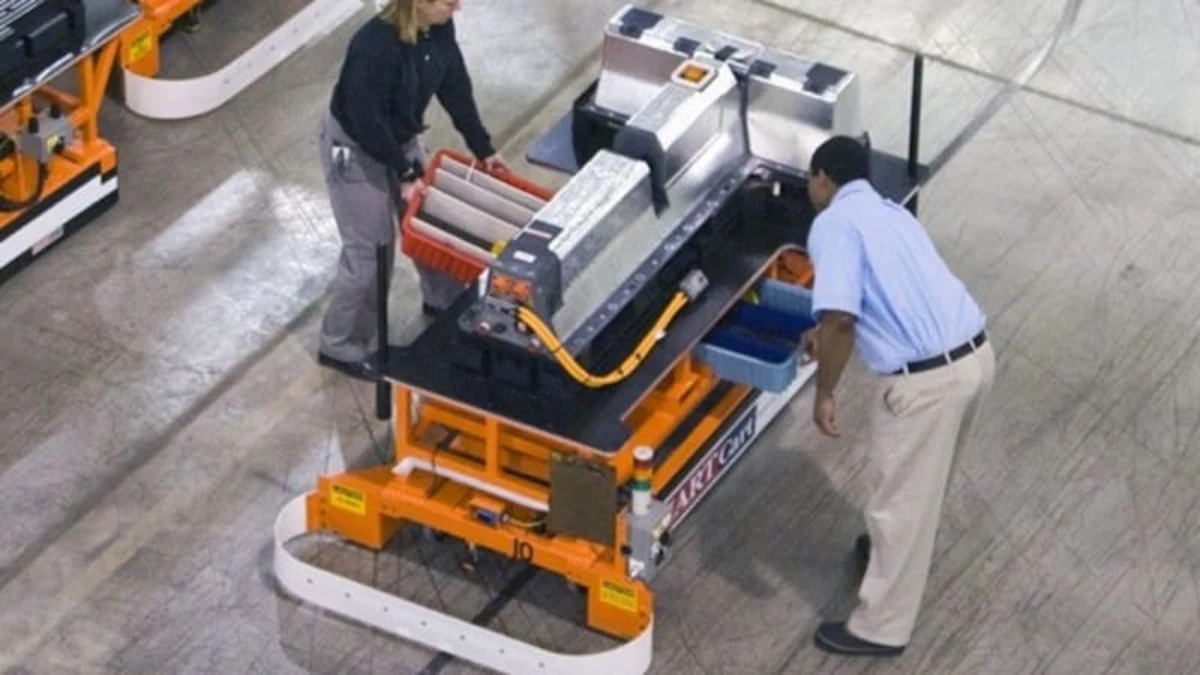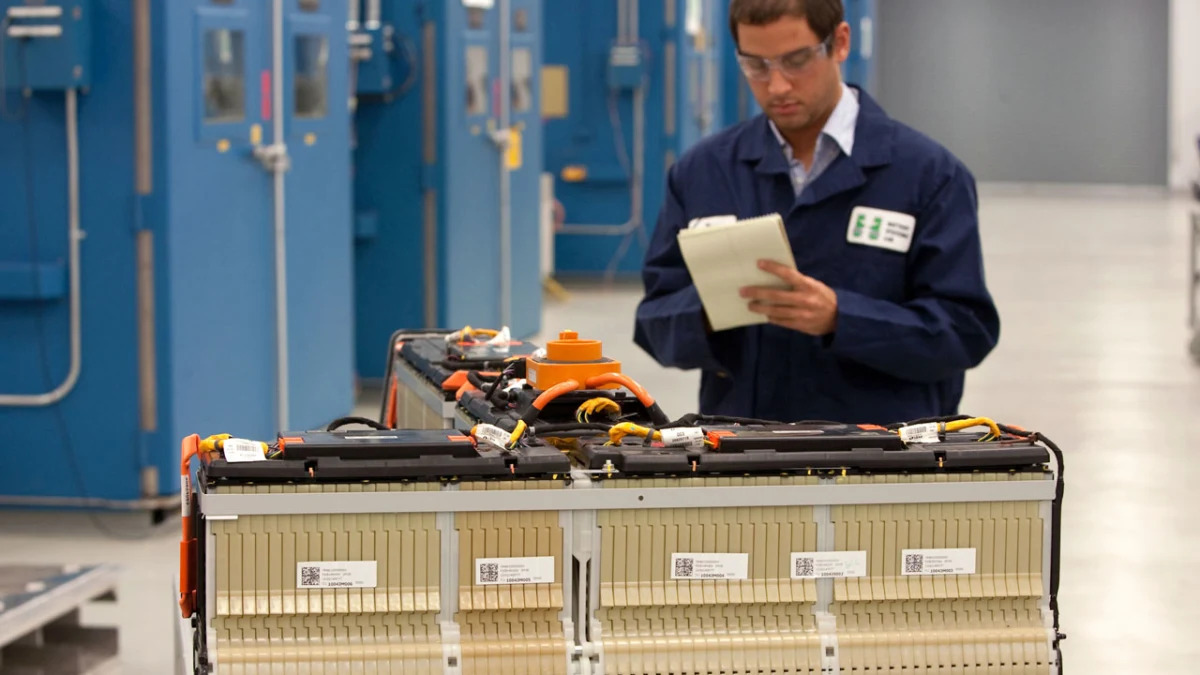Chevrolet Volt battery pack – Click above for high-res image gallery
During the drive for vehicle electrification in recent years there have been plenty of questions not everyone has the answers to: "where can I charge it?," "how much will it cost?" and "how long will the battery last?" Those of us that have lived with lithium ion batteries in computers and cell phones are well aware of their short-lived nature and high replacement cost, and there's a lot of confusion out there about how this technology will translate into automotive applications.
General Motors made a bold statement with its announcement yesterday that it would warrant the Chevrolet Volt battery pack for eight years and 100,000 miles. As we noted, this is at least in part due to the presence of an engine, which means regulators consider the battery part of the emissions control system. In order to get the advanced technology – partial zero emission vehicle classification and its attendant ZEV credits for the Volt, GM has to provide this warranty. All other hybrids currently on the market offer the same warranty, and Darryl Siry said GM's warranty "sets a high standard."
Pure battery electric vehicles like the Nissan Leaf and Tesla Roadster don't have an engine and are thus not constrained by these emissions rules. Tesla offers a mere three-year / 36,000-mile warranty on its $36,000 battery pack and only expects it to retain 70 percent of capacity after five years.
The real competitor to the Volt will be the Leaf, which Nissan has priced very aggressively. Up to this point, Nissan has not said what kind of warranty it will offer on the Leaf and its battery. A Nissan spokesman told ABG that the battery warranty would be announced closer to the on-sale date late this year. What kind of warranty would you be happy with?
General Motors made a bold statement with its announcement yesterday that it would warrant the Chevrolet Volt battery pack for eight years and 100,000 miles. As we noted, this is at least in part due to the presence of an engine, which means regulators consider the battery part of the emissions control system. In order to get the advanced technology – partial zero emission vehicle classification and its attendant ZEV credits for the Volt, GM has to provide this warranty. All other hybrids currently on the market offer the same warranty, and Darryl Siry said GM's warranty "sets a high standard."
Pure battery electric vehicles like the Nissan Leaf and Tesla Roadster don't have an engine and are thus not constrained by these emissions rules. Tesla offers a mere three-year / 36,000-mile warranty on its $36,000 battery pack and only expects it to retain 70 percent of capacity after five years.
The real competitor to the Volt will be the Leaf, which Nissan has priced very aggressively. Up to this point, Nissan has not said what kind of warranty it will offer on the Leaf and its battery. A Nissan spokesman told ABG that the battery warranty would be announced closer to the on-sale date late this year. What kind of warranty would you be happy with?
[Source: GM, Nissan, Darryl Siry]



Sign in to post
Please sign in to leave a comment.
Continue